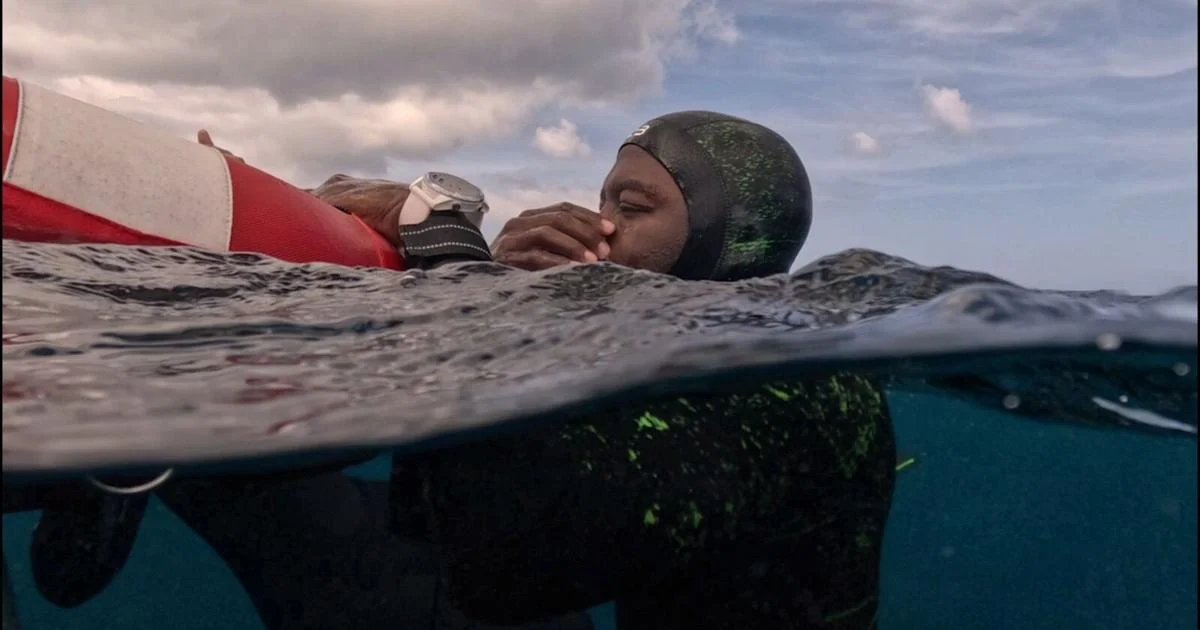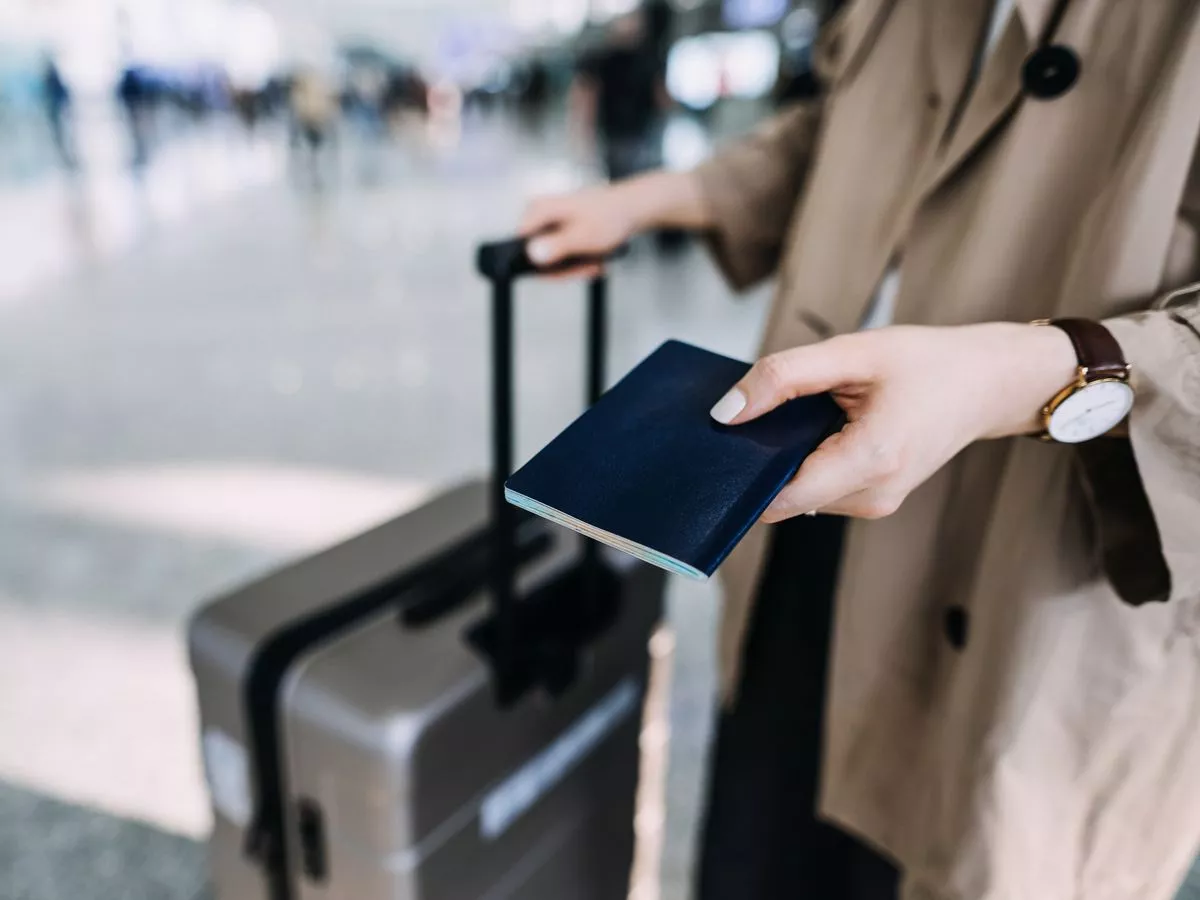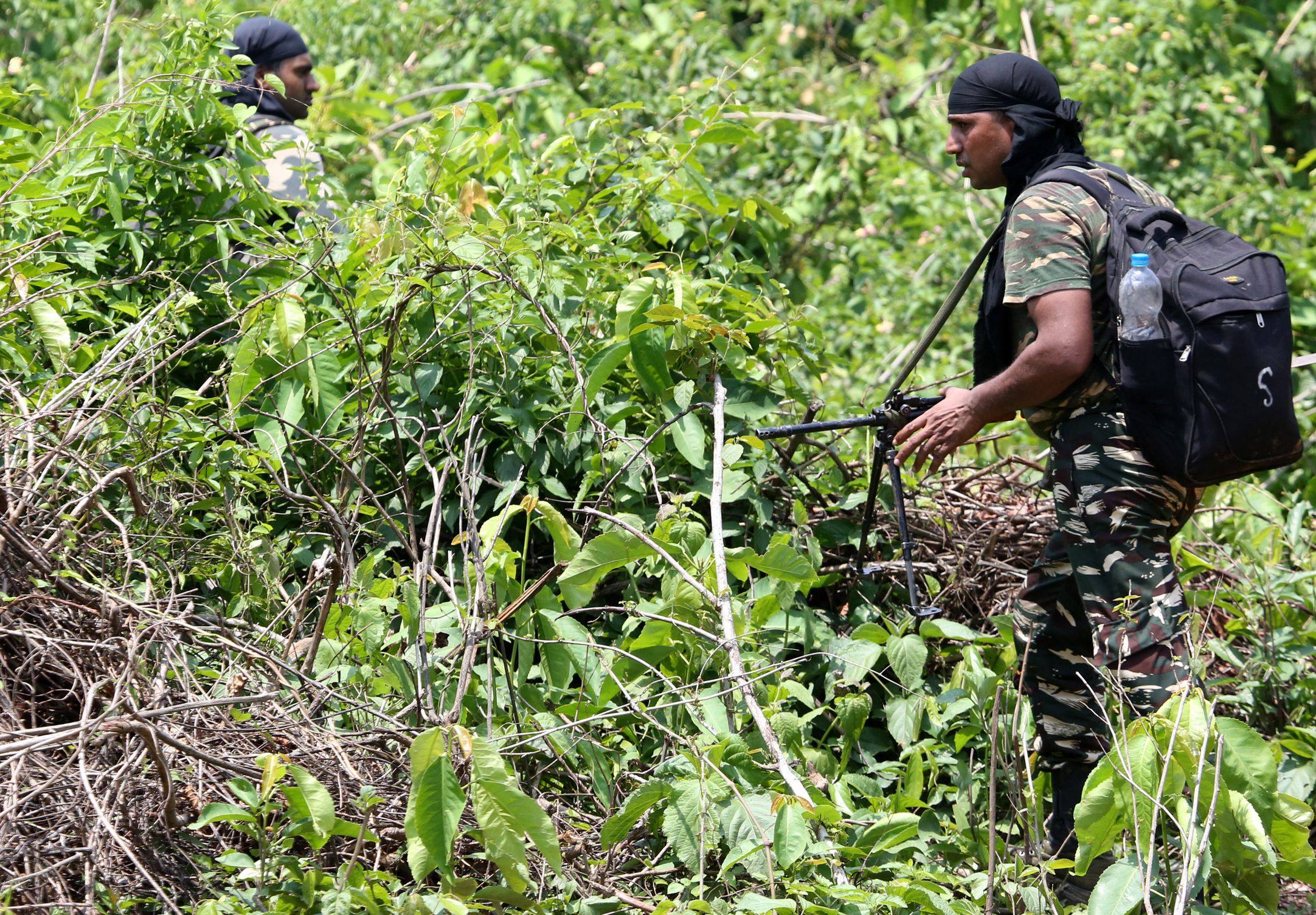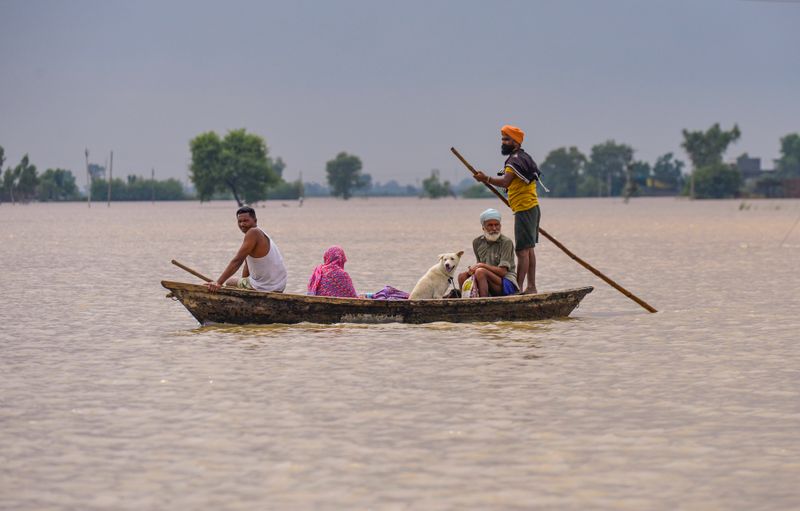By Kimberly Wallace
Copyright trinidadexpress

WHEN Jevaughn Ballington is 100 feet (30.5 metres) below the ocean’s surface, he feels a calmness and peace that he never experiences anywhere else. At that depth, it’s just him, curious sea creatures, a great expanse of water—and, of course, silence.
The 29-year-old emergency medical technician, certified Molchanovs free-diving instructor and certified PFI instructor is the national record holder in free–diving—which involves holding your breath and diving underwater without the help of a scuba tank. On a single breath, Ballington plunges beneath the waters, his arms outstretched above his head, and with one kick he begins to descend.
To watch Ballington on one of his dives is to see someone surrender himself completely to the ocean. After a certain depth, his body goes into free fall, one metre per second. In that moment, his body begins to work not only to keep him alive but to keep him safe. His mammalian dive reflex is activated, slowing his heart rate and diverting blood from other parts of his body to his organs, the spleen contracts, increasing the blood’s oxygen-carrying capacity, his eye pupils constrict which improves clarity and vision underwater.
Free-diving is considered an extreme sport; it’s one of those sporting disciplines that tests the body’s limits like none other. Because of the work that Ballington is doing with the Go Beyond Diving Academy, which he founded, Tobago is slowly but surely becoming a destination where athletes can push the limits of human physiology.
Ballington never imagined that he would become a free-diver or a free-diving instructor. He grew up in Lowlands and for a good portion of his childhood, he had a fear of the ocean. The first time his father took him in the water and threw him off his back and into the breakers, Ballington panicked.
Eventually, he learned to relax and swim back to the shore. His mother enrolled him in swim classes and after learning how to tread water, do the breaststroke and freestyle, the lessons stopped.
The next time he was tempted to venture past the ocean swells was when he was 18 and saw friends spear-fishing. He gave it a try and on his first attempt, he caught a 13-pound (5.9-kilogramme) barracuda, but long after the fish had been grilled and devoured, Ballington kept thinking about going back into the ocean and going deeper.
“Spear-fishing eventually became routine, I was more excited about going into deeper water and challenging myself to stay down a little longer each time,”said Ballington, who at the peak of his fitness level could hold his breath for six minutes, 29 seconds.
As fate would have it, he met Virgil Price, a lanky American from Florida with shoulder-length blond/brown hair and tattoos on both arms who did spear-fishing and free-diving classes in Tobago. Price persuaded Ballington to try free-diving. At the time, Ballington’s technique was off; he kept grabbing onto the rope on his descent, which increased drag and had bad body posture and poor finning technique, however, he stunned himself and Price when he dove to 40 metres.
Price decided to host an instructor course and invited Ballington and other persons to attend. As part of the training, Ballington had to do capacity dives—which are multiple dives with few and short breaks in between. He and others were trained to do rescue dives in the event that someone suffered a blackout during a dive.
“I had the time of my life,” he said. “It was challenging for everyone else, but I enjoyed it and even dove with everyone who was attempting the dives while also recording them.”
Ballington was later invited to go to Dominica and compete for a national record for Trinidad and Tobago; he made 100 feet in the bi-fins category, 30 metres without fins and 51 feet (15.5 metres) free immersion.
Last year, tragedy struck the free-diving community when Price went spear-fishing but never resurfaced. Ballington was devastated by his death but also motivated to leave behind a good legacy—just as Price had.
“Before I met Virgil, I didn’t know I had the capability to free-dive, today, I am an instructor and I’m bringing free-diving to T&T. Thanks to Virgil, the free-diving community is growing; the same virtues and training he shared with me are what I am giving to my students,”he said.
In July, Ballington was invited to go to Florida where he trained students at a large free-diving event which honoured Price. His Go Beyond Freediving Academy recently hosted a free-diving pool challenge at the Marlins Swim Club where young divers came out and performed.
“We have youngsters who have the capability to compete on an international level—there is so much talent in T&T,” said Ballington, who referred to female free-diver Earth Lezama, who set a national record for females in the bi-fins category in Dominica.
Ballington often sees sharks while on his dives; nurse sharks, blacktip sharks, hammerheads, bull sharks and the occasional tiger shark.
“I never worry about getting bitten. The movies show sharks attacking people just like that, but in reality, they are pretty chill,” said Ballington. “But if the visibility is not good, or if you get caught up in a feeding frenzy, you may get bitten. Or if they approach you and you start panicking and kicking, they might mistake you for a wounded animal and may bite. So it’s about knowing the language of sharks.”
He is on a mission to get the sport recognised nationally; his intention is to host more competitions in the future, exposing more youths to free-diving and increasing their appreciation for the ocean. He also hopes to put the spotlight on Tobago, particularly Charlotteville, as an ideal free-diving location for international competitions. This September, the national record holder in free-diving will become the first black person and the first person from the Caribbean to be a safety diver at an international free–diving event in Dominica.
Free-diving is sometimes solely regarded as a dangerous sport, and while there are obvious dangers if one were to prioritise competition over safety and push the boundaries, Ballington says free-diving is an otherwise perfect mental exercise. It trains and strengthens lung capacity, the muscles and the cardiovascular system. Free-divers learn how to relax, control their breathing and do a body scan, and visualise—techniques that help them in the ocean and during stressful situations on land.
“Persons who thought they couldn’t hold their breath longer than 30 seconds have through training been able to hold their breath a lot longer and dive a bit deeper, and when that happens, a whole new world opens up and everything becomes doable,” said Ballington. “It builds mental toughness, and I have seen this in people over and over again.”
Ballington believes everything happens for a reason; his transformation from the boy who was scared of the ocean into the national record holder in free-diving did not happen by chance.
“If I don’t give 100 per cent to teaching and training others, then I would be wasting this gift that God has given to me. I’m not stopping anytime soon, even if it takes me 15 years to get from 90-91 metres, I will enjoy every minute of it,” said Ballington.



